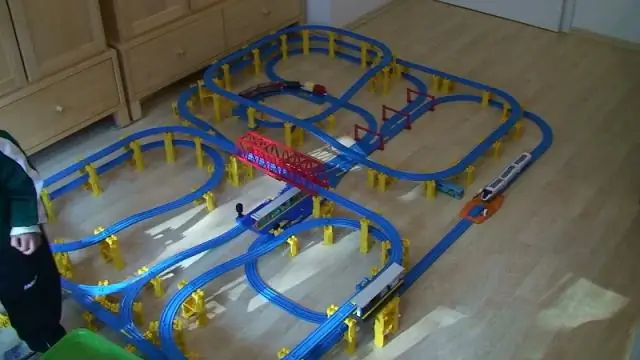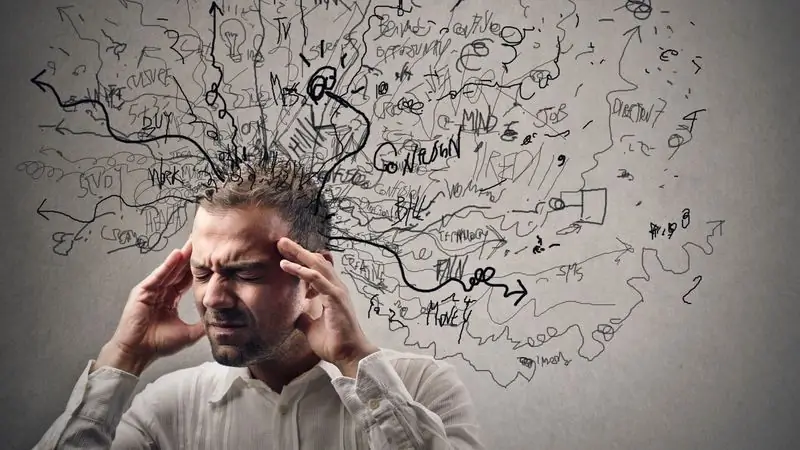
Table of contents:
- Author Bailey Albertson albertson@usefultipsdiy.com.
- Public 2023-12-17 12:53.
- Last modified 2025-01-23 12:41.
12 exercises to improve memory and brain function after 45

Every person at any age needs to maintain their intellectual health. And this requires training memory and attention with the help of various simple, but quite effective exercises.

Mirror painting
For this exercise, you will need to prepare a large sheet of paper and take a pencil in each hand. To begin with, you can mirror any of the same simple objects, for example, circles, triangles, loops, zigzags, but always with your left and right hand. Over time, it will turn out to depict more complex objects and whole pictures.
Recover reality in imagination
Having chosen a convenient moment and creating a calm atmosphere, you need to imagine any person or object from those around you during the day and try to restore in your memory its features and characteristics as accurately, colorfully and in detail as possible. Then you can go even further - fantasize and come up with whole stories with selected objects, thereby developing your creativity and creativity of thinking.
Synchronous writing
An excellent exercise for training attention switching and the ability to perform several tasks at once, which consists in the simultaneous image of dissimilar objects with the left and right hand. Its benefit lies in the involvement of both hemispheres of the brain.
A story made from random words
The work of linking randomly selected words into a coherent story can be very exciting, and at first you need to come up with long sentences, and with experience it will turn out to combine into the narrative with literally a couple of sentence members, at first glance, incompatible words.
Neurobics
The technique of this charging for the brain involves the use of all five senses at the same time, when habitual actions are performed in unusual ways. Examples of this include: changing the usual route, writing with the left hand, moving in a room with closed eyes, identifying objects by touch and smell, non-standard answers to questions, mastering new activities.
Finger marks
The exercise "finger" came to us from yoga and is a certain movement of the fingers, aimed at the coordination of the work of the cerebral hemispheres and the creation of new neural connections. The speed of thinking, decision-making and reaction is increased.
Illogical chain
In a short time, you need to memorize a list of words and then repeat it as accurately as possible. You can create pairs of words by linking them through visual associations. For example, flooring, sweet orange, school notebook, and so on.
Schulte table

For those who want to develop visual memory and speed reading skills, it is useful to use Schultz tables. They consist of cells with chaotically arranged numbers in them and require switching our attention from sequential to parallel, volumetric, allowing us to memorize more informative fragments.
For example, take a table of five rows and five columns with numbers from 1 to 25 in random order. And on speed, without speaking, consistently ascending to find them, trying to cover the entire table with a glance at once. The exercise trains peripheral vision, helping to find the necessary information in any text much faster.
Write with the other hand
In order for the right hemisphere of the brain not to be lazy, it is useful for right-handers to write with their left hand, thereby forcing it to do unusual work. This leads to the development of intuition, creativity, imagination and improved coordination.
New properties of familiar things
Tasks such as unexpected uses of bricks are great for developing creative thinking - they "provoke" the vision of objects and their properties from unusual angles.
Juggling
Juggling, which can be practiced at any age, will effectively improve the connection between neurons in the brain. This useful skill in hand-eye coordination will not disappear over time like a cycling skill and will help restore mental health.
Chess
The benefits of chess can hardly be overestimated. Since ancient times, this game has made it possible to apply all the cognitive processes at the disposal of a person. Chess develops not only memory, but also logic, systems thinking, analysis, attention, learning, purposefulness, and also develops character.
Recommended:
How To Wash An Apple From Clothes (for Children Or Adults), How To Wash Your Hands Of This Fruit, Ways To Remove Stains From Apple Juice And Other Tips

Methods for cleaning white and colored things from apple traces. Their pros and cons. How to remove old tracks. How to wash your hands after peeling apples
12 Signs Your Brain Is Aging Faster Than You

Signs of Brain Aging Faster Than Body: Cognitive Changes Indicating Serious Illness
Portuguese Woman Gave Birth To A Child After Brain Death

Life story of Katharina Sequeira, who gave birth to a child 3 months after brain death
Can IVF Provoke Cancer In Women, Including The Brain, Is There A Connection

Can IVF procedure provoke oncology? Is the likelihood of developing various forms of cancer increasing? Expert opinion
5 Non-obvious Things That Will Improve Brain Function

What recommendations need to be followed to make the brain work better than usual
